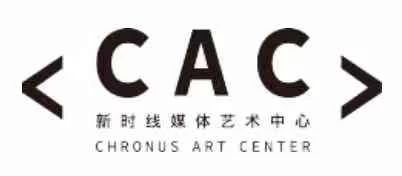CAC x swissnex China | Café des Sciences presents Semiotics through New Media Art
Date:
2019.11.21 (Thursday)
Time:
18:00 – 20:30
Venue:
swissnex China Shanghai office 22F, Building A, Far East International Plaza319, Xianxia Road
Language:
English
Organizer:
swissnex China
Co-organizer:
Chronus Art Center
Andreas Gysin, a Swiss designer and residency artist at Chronus Art Center and Pro Helvetia, is invited by swissnex China as the speaker of the eleventh Café des Sciences, a monthly talk series launched by swissnex China in 2019.
In today’s day and age, signs are ubiquitous than ever before. The moment we wake up, we pick up our smartphones that have been charged up by our pillows ready to blast us with another day of information overload: political scandals, corporate jargons, protest signs, advertisement posters, 6-second video clips of loud music and vibrant visuals. And, the most chilling fact is, we are used to them. We crave them. We cannot live for a moment without them because if otherwise, we will stop to be busy. Not busy makes us confused, aimless, and bored. So we constantly seek out visual, auditory, tactile, olfactory, or taste signs to tell us what to do, how to think, and pretend to be “productive”.
It is under this context that Andreas’s works become important. They erase meaning to offer a moment of peace out of the meaninglessness.
Co-organized with

Chronus Art Center (CAC) is China’s first nonprofit art organization dedicated to the presentation, research / creation and scholarship of media art. CAC with its exhibitions, residency-oriented fellowships, lectures and workshop programs and through its archiving and publishing initiatives, creates a multifaceted and vibrant platform for the discourse, production and dissemination of media art in a global context. CAC is positioned to advance artistic innovation and cultural awareness by critically engaging with media technologies that are transforming and reshaping contemporary experiences.
Supported by

Pro Helvetia is dedicated to the promotion of contemporary cultural works of national and international interest. It also fosters co-productions or exchanges between Swiss artists and artists from other countries, in particular from countries where Pro Helvetia has a regional office. Pro Helvetia Shanghai is founded in 2010 and represents the Swiss Arts Council in mainland China, Hong Kong and Macau. Its aim is to encourage dialogue between Swiss and Chinese cultural practitioners and institutions by supporting projects that enhance the exchange of knowledge and experience in the cultural field.
Café des Sciences
Shanghai | Every third Thursday each month 2019
Café des Sciences is a new format at swissnex China offering a monthly platform for Swiss Spotlight Scientists and Start-ups to present their projects and connect with the local community. The lectures will offer a casual setting in which speakers can present their work and engage with the attendees during a Q&A period. Audiences are welcomed to enjoy the networking reception with Swiss flavour after the talk. The lecture is scheduled to take place every third Thursday each month at swissnex China or our partner spaces.

Andreas Gysin
Born in 1975 in Zürich, Switzerland, Andreas Gysin is part of a duo with Sidi Vanetti: together they work on design and research projects without a particular purpose since 2000. The duo Gysin-Vanetti was listed among “Collection Cahiers d’Artistes” by Pro Helvetia in 2013. Andreas in particular explores and extends the work around the “found geometries” in industrial and urban signage, displays and other electro-mechanical objects. The visual characteristics and configurations (color, form) and the internals (mechanics, electronics) are the center aspects of his signiture work, which began in 2007 by designing and programming a custom-built split-flap display. Later this approach extended to other signage systems and objects, kinetic and static. An important aspect of the work is the displacement and the reconfiguration of these informative elements, removing the original function but enabling a different and new reading of the forms.